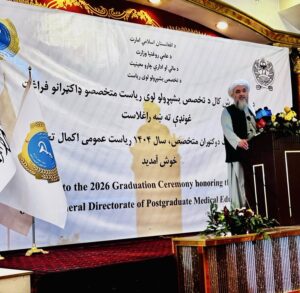KABUL (SW) – The United Nations World Food Programme (WFP) in Afghanistan has highlighted the dire situation in the country, where a quarter of citizens go to bed hungry each night.
In Kabul, workers like Shafiq, earning daily wages, struggle to make ends meet amidst crowded streets, unable to afford even dried fruits for Eid celebrations. His face reflects despair as he waits for work that may not come.
“I haven’t bought cookies, raisins or any goods for my children, and now our stomachs can’t be satisfied from hunger and other things are not satisfying,” he added.
Amrullah, another laborer, tears welling in his eyes, laments his inability to prepare for Eid due to extreme poverty. He appeals to the de-facto government for support, emphasizing the daily struggle to survive on sporadic wages. “We have nothing, we work one day a week and where can we spend its money sooner?”
Meanwhile, the World Food Programme reports that millions across Afghanistan celebrate Eid while a significant portion of the population faces hunger. Families gather, yet a staggering number continue to struggle. The organization has called for assistance to the needy on Eid al-Adha.
Abdul Rahman Habib, spokesperson for the Ministry of Economy, acknowledges the severity of the situation, outlining short and long-term plans to alleviate poverty. The Islamic Emirate de-facto government has prioritized infrastructure projects to combat the crisis.
Earlier, the United Nations Office for the Coordination of Humanitarian Affairs (OCHA) stated that half of Afghanistan’s population depends on humanitarian aid, requiring $3.1 billion for effective relief efforts, of which only 20% has been funded to date.






